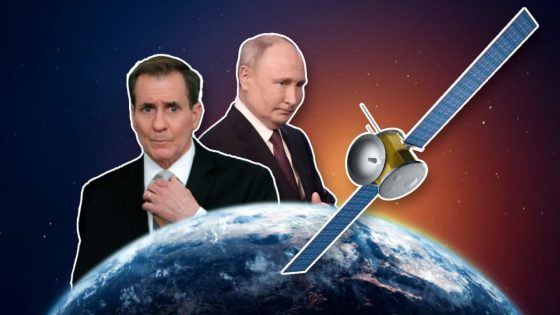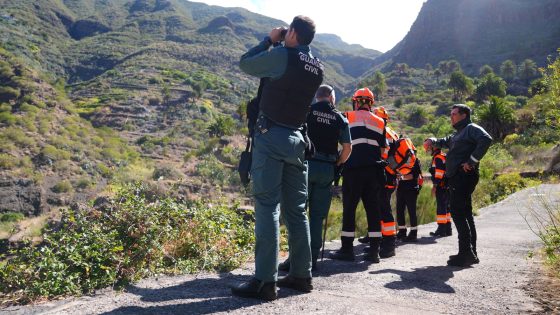Key Points
- White House intelligence has prompted questions around Russia developing its nuclear space capabilities.
- Experts weigh in on whether Russia has nuclear space weapons in the works.
- While we’re not going to die, they said we should be concerned about space safety.
The White House has warned its allies that it is taking new intelligence about Russia developing its space nuclear capabilities “very seriously”.
The exact nature of the weapon – and whether it actually exists – is unclear, but threatening satellites could cause all sorts of problems.
The Kremlin has labelled the reports a “malicious fabrication” to ensure US politicians approved more money to counter Russia.
Here, experts explain the media frenzy and what elements are concerning.
What do we know about the so-called Russian ‘space weapon’?
Rumours of a Russian threat emerged on 14 February after Mike Turner, chairman of the House intelligence committee, urged the White House to declassify intelligence.
He claimed it contained a “serious national security threat”. The words nuclear and space quickly spread, causing alarm around a mysterious Russian space weapon.
National Security Council spokesman John Kirby said there would be no physical destruction on earth. Source: AAP / Michael Brochstein/Sipa USA
On Thursday, the National Security Council spokesman John Kirby confirmed that Russia is developing a space-based “anti-satellite capability” that, he said, was troubling but poses no immediate threat.
“We’re not talking about a weapon that can be used to attack human beings or cause physical destruction here on Earth,” he said.
So what nuclear space tech is Russia developing?
Three potential technologies are front and centre of discussions: anti-satellite capabilities, nuclear space weapons or a nuclear-powered satellite.
Cassandra Steer, Deputy Director of ANU Institute for Space, told SBS News several countries, including the US, are developing counter-space capabilities.
This is the ability to interrupt or interfere with satellite systems which are critical to sysmtes for communication, navigation, surveillance and weapons guidance.
The Kremlin has labelled reports of Russan nuclear weapons in space a “malicious fabrication” to ensure US politicians approved more money to counter Russia. Source: AAP / TASS/Sipa USA
She added that “nothing is being deployed that is nuclear” as Russia is bound by the 1967 Outer Space treaty which bans nuclear weapons from being put into orbit.
Steer said nuclear explosions or electromagnetic pulses in space were banned at the height of the Cold War, under the 1963 Partial Test Ban Treaty, due to their uncontrollable nature.
A US high-altitude nuclear test in 1962, known as Starfish Prime, demonstrated that the radiation spread further than anticipated with the earth’s magnetic field, damaging satellites on the other side of the world.
“There is absolutely no way that Russia would be developing a nuclear weapon,” Steer said.
“It would just go against their own interests. They can’t use a weapon like that without compromising their own capabilities, which they desperately need right now in Ukraine.”
She also warned debris caused from destroying satellites in space travelled ten times faster than a bullet, which would greatly damage other equipment Russia has in space.
She concluded the final and most likely option is the development of nuclear-powered satellites.
UNSW Professor in electrical engineering Elias Aboutanios said Russia may be working on a nuclear source which could power satellites or other technology.
“A nuclear source in space is like a little nuclear reactor to generate power,” he said.
Aboutanios said nuclear sources have been used to power deep space missions in the past, as they have a longer life than a spacecraft powered with solar, which is less effective the further it travels from the sun.
He said in theory these nuclear sources could be used to supply power to high-power weapons, with the ability to disrupt infrastructure satellites.
Should you be worried? Experts say space conflict is a ‘lose lose’
Both experts said while the end of the world isn’t near, we should be worried.
Steer said the sensationalised news served as a timely reminder about the high stakes of space security and the lack of guidelines or rules.
She noted Russia had not been a good actor and blocked several attempts by the international community to establish simple consensus agreements around space.
“If we do have a conflict in space, it’s a lose-lose for everybody,” Steer said.
Aboutanios said space can be “weaponised in several ways” including anti-satellite tests from the ground as demonstrated by the US, China, Russia and India.
“We should be worried about a slippery slope towards an eventual weaponisation of space … if we blow things up we end up with space debris making space unusable,” he said.
“Effectively the thing about space is that you need good citizens… You need everybody’s cooperation to keep space clean and tidy and usable.”





